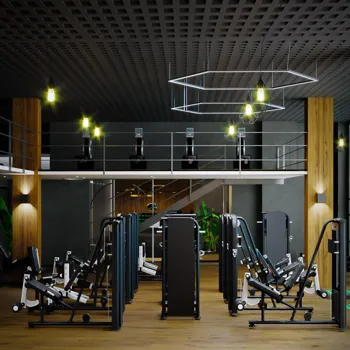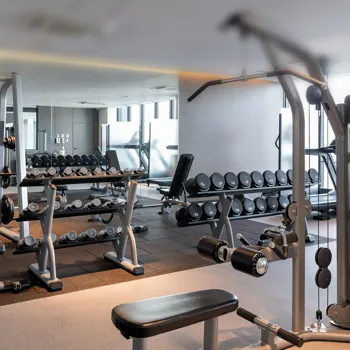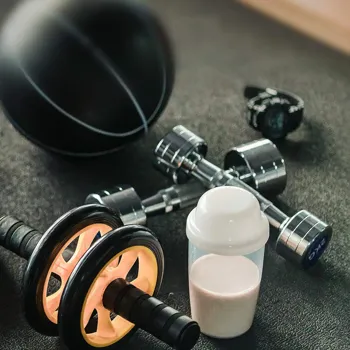Uncover the Truth: Debunking 8 Fitness Myths! Discover the real keys to a healthier you. Read on to separate fact from fiction!
Namaste, fitness enthusiasts! In a country like India, where chai and samosas
reign supreme, staying fit can feel like climbing Mount Everest. But fear not! The world of fitness is often clouded by myths, passed down like grandma's secret recipes (but far less accurate).
Let's debunk some common fitness beliefs and equip ourselves with the real gyaan to achieve our health goals. Forget the hearsay, this is the real deal when it comes to achieving a healthier you, without falling prey to baseless claims and misconceptions.
We Indians are known for our jugaad, but when it comes to fitness, a proper understanding trumps shortcuts every time. So, let's get started and separate fact from fiction!
Listen to your body, avoid excessive pain, focus on gradual progress in fitness for long-term success
Let's begin with the age-old myth: "No pain, no gain!" This simply screams, 'wrong advice'. While pushing yourself is important, excruciating pain isn't the goalpost. It's your body’s way of saying, "Boss, something's not right!" Ignoring this can lead to injuries that set you back.

Instead, listen to your body. A little discomfort is acceptable, but sharp, persistent pain? That's a red flag. Focus on progressive overload – gradually increasing the intensity of your workouts over time. This way, you challenge your body without pushing it to the breaking point.
Think of it like building a beautiful temple, slowly and steadily, brick by brick, instead of trying to erect it overnight and have it crumble. Remember that recovery days are also crucial, allowing your muscles to repair and grow stronger. So, ditch the pain obsession and embrace smart training.
It's all about consistency and sustainability, not punishing yourself into oblivion. Understand that the 'no pain, no gain' mantra is a recipe for disaster, not success. Fitness is a marathon, not a sprint.
Cardio alone isn't key for weight loss; include strength training and diet for success
Next up is the myth that cardio is the only way to lose weight. While cardio definitely burns calories, it's not a magic bullet. Weight loss is primarily about creating a calorie deficit – burning more calories than you consume.

This can be achieved through a combination of cardio, strength training, and a healthy diet. Strength training, often overlooked, is crucial because it helps build muscle mass. More muscle means a higher metabolism, which in turn means you burn more calories even at rest.
Think of your body as a furnace. Muscle is the wood that keeps the fire burning bright, while cardio is like fanning the flames for a short burst. Aim for a balanced approach that includes both cardio and strength training. Don't be afraid to lift weights, ladies!
It won't make you bulky, it will make you strong and toned. Remember, a holistic approach to fitness is the key to long-term success and overall well-being.
Spot reduction is a myth; focus on overall fat loss through diet and exercise
Now comes a popular one: "Spot reduction – targeting specific areas for fat loss.” Sadly, this is a myth that refuses to die. You can't just do endless crunches and expect to get a six-pack. Your body burns fat from all over, not just the area you're working on.
Crunches will strengthen your abdominal muscles, but they won't magically melt away belly fat. To reveal those abs, you need to focus on overall fat loss through a balanced diet and regular exercise. Think of your body as a whole, not as individual parts.
You can't build a strong house by only focusing on one wall. Remember, consistency and patience are key. Building a strong and healthy body takes time and effort, but the results are well worth it.
Don't waste your time on spot reduction exercises, instead, focus on a well-rounded fitness routine that targets all muscle groups and promotes overall fat loss.
Eating healthy is affordable with whole foods, planning, and cooking at home
Eating healthy is expensive" is a common excuse. While some superfoods can be pricey, eating healthy doesn't have to break the bank. Focus on whole, unprocessed foods like fruits, vegetables, and lentils which are very affordable and easily available in India.
Plan your meals in advance and buy in bulk to save money. Cook at home instead of eating out, and pack your own lunch and snacks. Remember, eating healthy is an investment in your health and well-being. Think of it as paying for prevention rather than cure.
A little planning and effort can go a long way in making healthy eating more accessible and affordable. Instead of relying on expensive supplements and fad diets, focus on building a balanced and sustainable eating plan that fits your budget and lifestyle.
After all, good health is the greatest wealth.
It's never too late to start exercising for better health
Let's tackle the myth that "Fitness is only for young people". Age is just a number! It's never too late to start exercising and improve your health. In fact, staying active as you get older is crucial for maintaining mobility, strength, and cognitive function.
Start slowly and gradually increase the intensity of your workouts. Consult with a doctor before starting any new exercise program, especially if you have any underlying health conditions. Focus on activities that you enjoy and that are appropriate for your fitness level.
Remember, fitness is a journey, not a destination. It's about making small, sustainable changes that improve your overall health and well-being. So, whether you're 20 or 80, it's never too late to embrace a healthy and active lifestyle.
Supplements can enhance, not replace, a balanced diet and exercise
Finally, the idea, often peddled in supplement ads, that achieving fitness is all about the right products. Supplements can be helpful in certain cases, but they're not a substitute for a balanced diet and regular exercise.

Many supplements make false promises and are not regulated by the government. Focus on getting your nutrients from whole foods and only consider supplements if you have a specific deficiency or need. Remember, a healthy body is built with real food and consistent effort, not pills and powders.
Think of supplements as the icing on the cake, not the cake itself. They can enhance your fitness journey, but they can't replace the fundamentals of healthy eating and regular exercise. Stay informed, be skeptical, and prioritize a balanced and sustainable approach to fitness.















